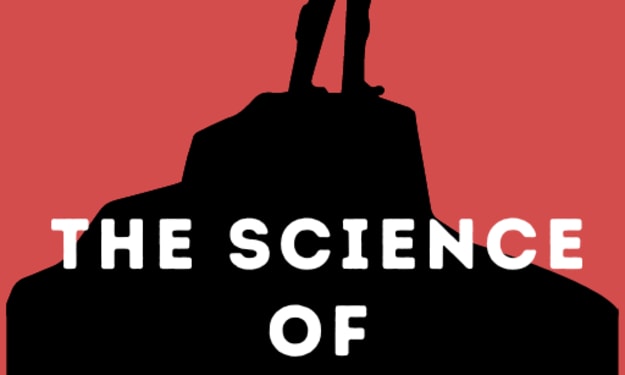Effective Time Management Techniques for Busy Professionals
Understanding the Challenges Faced by Busy Professionals

1. Introduction
The Importance of Time Management
Time is a precious resource that is equally distributed among all individuals. However, how we manage this resource can significantly impact our productivity, stress levels, and overall success. Effective time management allows busy professionals to maximize their productivity, achieve their goals, and maintain a healthy work-life balance.
Understanding the Challenges Faced by Busy Professionals
Busy professionals often face unique challenges such as heavy workloads, tight deadlines, and numerous responsibilities both at work and at home. These challenges can lead to stress, burnout, and a feeling of being overwhelmed. By mastering time management techniques, professionals can navigate these challenges more effectively and enjoy a more fulfilling career and personal life.
2. Assessing Your Current Time Management
Conducting a Time Audit
Before implementing new time management strategies, it is essential to understand how you currently spend your time. Conduct a time audit by tracking your activities for a week. Note down everything you do, including work tasks, meetings, breaks, and personal activities. This will provide a clear picture of where your time is going and identify areas for improvement.
Identifying Time Wasters
Review your time audit and identify activities that do not add value or contribute to your goals. Common time wasters include unnecessary meetings, excessive social media use, and interruptions. Recognizing these time wasters is the first step toward eliminating them and making better use of your time.
3. Setting Clear Goals and Priorities
SMART Goals
Setting clear, specific, and achievable goals is crucial for effective time management. Use the SMART criteria to set your goals:
- Specific: Clearly define what you want to achieve.
- Measurable: Determine how you will measure progress and success.
- Achievable: Ensure your goal is realistic and attainable.
- Relevant: Align your goal with your broader objectives.
- Time-bound: Set a deadline for achieving your goal.
The Eisenhower Matrix
The Eisenhower Matrix, also known as the Urgent-Important Matrix, is a powerful tool for prioritizing tasks. It categorizes tasks into four quadrants:
1. Urgent and Important: Do these tasks immediately.
2. Important but Not Urgent: Schedule these tasks for later.
3. Urgent but Not Important: Delegate these tasks if possible.
4. Not Urgent and Not Important: Eliminate or minimize these tasks.
By focusing on tasks that are both important and urgent, you can ensure that your time is spent on activities that truly matter.
4. Planning and Organizing Your Day
Daily and Weekly Planning
Effective planning is key to managing your time well. Start by creating a weekly plan that outlines your major tasks and commitments for the week. Break this down into daily plans with specific tasks and time blocks for each day. Having a clear plan helps you stay focused and ensures that you allocate time for your most important activities.
The Role of To-Do Lists
To-do lists are simple yet powerful tools for organizing your tasks. Write down all the tasks you need to complete and prioritize them based on importance and urgency. Review your to-do list at the beginning and end of each day to track your progress and adjust your plan as needed.
5. Time Management Techniques
The Pomodoro Technique
The Pomodoro Technique involves breaking your work into 25-minute focused intervals (called Pomodoro’s) followed by a 5-minute break. After four Pomodoro’s, take a longer break of 15-30 minutes. This technique helps maintain focus and prevents burnout.
Time Blocking
Time blocking involves scheduling specific blocks of time for different tasks or activities. This method helps ensure that you allocate sufficient time for important tasks and reduces the likelihood of distractions.
The Two-Minute Rule
The Two-Minute Rule, popularized by productivity expert David Allen, suggests that if a task can be completed in two minutes or less, do it immediately. This prevents small tasks from piling up and becoming overwhelming.
6. Effective Delegation
Identifying Tasks to Delegate
Delegation is essential for managing your workload effectively. Identify tasks that can be handled by others, freeing up your time for more critical activities. Look for tasks that do not require your specific expertise or tasks that others can complete more efficiently.
Choosing the Right Person
Choose the right person for the task based on their skills, experience, and availability. Ensure that the person you delegate to has the necessary resources and support to complete the task successfully.
Providing Clear Instructions
When delegating tasks, provide clear instructions and expectations. Clearly communicate the task's objectives, deadlines, and any specific requirements. Regularly check in to offer support and ensure progress is being made.
7. Digital Tools and Apps for Time Management
Calendar and Scheduling Apps
Digital calendars and scheduling apps, such as Google Calendar and Microsoft Outlook, are essential tools for time management. They help you schedule appointments, set reminders, and organize your time effectively.
Task Management Tools
Task management tools like Trello, Asana, and Todoist allow you to create and manage to-do lists, set deadlines, and track progress. These tools help keep your tasks organized and ensure that nothing falls through the cracks.
Communication Platforms
Communication platforms like Slack, Microsoft Teams, and Zoom facilitate efficient communication and collaboration. These tools help reduce the time spent on emails and meetings, allowing you to manage your time more effectively.
8. Managing Meetings Efficiently
Setting Clear Agendas
Meetings can be significant time-wasters if not managed properly. Set clear agendas for meetings, outlining the topics to be discussed and the desired outcomes. Share the agenda with participants in advance to ensure everyone is prepared.
Keeping Meetings on Track
During meetings, stick to the agenda and keep discussions focused. Assign a timekeeper to ensure that the meeting stays on schedule. Encourage participants to stay on topic and avoid unnecessary tangents.
Following Up on Action Items
After the meeting, follow up on action items and ensure that tasks are assigned to the appropriate individuals with clear deadlines. Regularly check in on progress to ensure that tasks are completed as planned.
9. Balancing Work and Personal Life
Setting Boundaries
Setting clear boundaries between work and personal life is essential for maintaining a healthy balance. Establish specific work hours and stick to them. Communicate your boundaries to colleagues and family members to ensure they are respected.
Prioritizing Self-Care
Self-care is crucial for preventing burnout and maintaining overall well-being. Make time for activities that help you relax and recharge, such as exercise, hobbies, and spending time with loved ones.
Strategies for Preventing Burnout
Preventing burnout involves managing stress and workload effectively. Take regular breaks, avoid overcommitting, and seek support when needed. Implementing effective time management strategies can help reduce stress and prevent burnout.
10. Overcoming Procrastination
Understanding Procrastination
Procrastination is the act of delaying or avoiding tasks. Understanding the reasons behind procrastination, such as fear of failure or lack of motivation, can help you address it effectively.
Techniques to Overcome Procrastination
- Break Tasks into Smaller Steps: Breaking tasks into smaller, manageable steps makes them less overwhelming.
- Set Deadlines: Setting deadlines creates a sense of urgency and helps you stay on track.
- Use Positive Reinforcement: Reward yourself for completing tasks to stay motivated.
11. Staying Motivated and Focused
Maintaining High Energy Levels
Maintaining high energy levels is essential for staying productive. Ensure you get enough sleep, eat a balanced diet, and exercise regularly to keep your energy levels up.
Staying Focused Amid Distractions
Distractions can significantly impact productivity. Minimize distractions by creating a dedicated workspace, turning off notifications, and setting specific times for checking emails and social media.
Continuous Improvement
Continuous improvement involves regularly reviewing and refining your time management strategies. Reflect on what works and what doesn’t, and make adjustments as needed to enhance your productivity.
12. Conclusion
Recap of Key Techniques
Effective time management involves setting clear goals, prioritizing tasks, planning and organizing your day, and using various techniques to stay focused and productive. Delegation, digital tools, efficient meetings,
About the Creator
zahid ahmed
I am a dedicated content writer with a passion for crafting compelling and engaging narratives. With a keen eye for detail and a deep understanding of the digital landscape, I bring ideas to life through words.
Enjoyed the story? Support the Creator.
Subscribe for free to receive all their stories in your feed. You could also pledge your support or give them a one-off tip, letting them know you appreciate their work.






Comments (1)
Thank you for the interesting and delicious content. Follow my stories now.